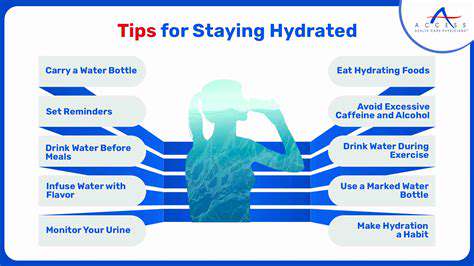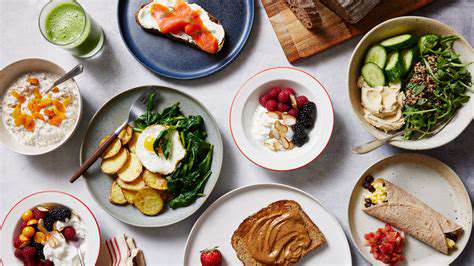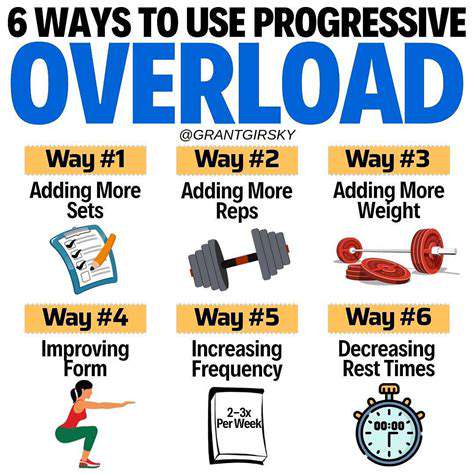How to Stay Hydrated: Beyond Just Drinking Water
Effective hydration requires more than just drinking water—it demands establishing consistent habits. Keeping a reusable water bottle handy and sipping regularly makes a difference. Including water-rich foods like fruits and vegetables in your diet contributes to daily intake. Using phone reminders or hydration apps can help track and meet your hydration goals.
Tailoring your hydration strategy to account for activity levels and climate conditions optimizes results. Implementing these practical approaches helps maintain ideal hydration levels and enjoy its numerous benefits.
Hydration Through Food: A Hidden Source of H2O
Fruits and Vegetables: Nature's Refreshing Hydration
Beyond their nutritional value, fruits and vegetables offer excellent hydration. Water-rich options like watermelon and berries contain substantial water content. Including colorful produce in meals and snacks boosts fluid intake naturally. The juicy sweetness of cantaloupe or crisp texture of cucumber provide delicious hydration throughout the day.
Soups and Broths: Nourishing Hydration
Hearty soups and broths offer dual benefits—hydration and nutrition. Whether enjoying chicken noodle soup or vegetable broth, these meals provide substantial water content. Their consumption proves particularly valuable in colder months when plain water intake might decrease.
The minerals and electrolytes in broth enhance water absorption, making these options especially effective for hydration.
Dairy Products: Creamy Hydration
Often overlooked, dairy products like yogurt and milk provide valuable hydration. Their water content combines with electrolytes that improve water retention and utilization. A glass of milk or serving of yogurt offers a satisfying way to meet hydration needs while delivering essential nutrients.
Legumes and Beans: Plant-Based Hydration
Staple ingredients in many cuisines, legumes and beans contain significant water content. Incorporating lentils, chickpeas, or kidney beans into meals contributes to fluid intake. Their fiber content supports digestive health while their hydrating properties maintain bodily functions.
Healthy Grains: A Hidden Hydration Powerhouse
Whole grains like oats and brown rice contribute to hydration despite their lower water content. The digestive process for these grains requires water, helping maintain hydration levels. A bowl of oatmeal or serving of brown rice provides unexpected hydration benefits within a balanced diet.
Hydrating Beverages Beyond Water: Smart Choices
While water remains ideal, other beverages can supplement hydration. Unsweetened herbal teas, fruit-infused waters, and diluted juices offer alternatives. Opting for naturally sweetened, minimally processed options ensures better hydration and health outcomes. Understanding various drinks' hydration potential supports informed beverage choices.
Before considering stock investments, thorough research extending beyond surface analysis proves essential. Examining financial statements for revenue growth, profit margins, and debt ratios provides critical insights. Equally vital is assessing a company's industry position and competitive advantages. This comprehensive evaluation helps identify promising investments while avoiding those with weak fundamentals.
Tips for Staying Hydrated Throughout the Day

Staying Hydrated Throughout the Day
Maintaining proper hydration supports overall health and wellness. Hydration fuels essential bodily functions, from temperature regulation to nutrient transport. Dehydration causes various unpleasant symptoms including fatigue, headaches, and cognitive impairment. Prioritizing consistent hydration proves more effective than waiting until thirst appears.
Simple measures like carrying a water bottle and pacing water intake make significant differences. Understanding personal hydration needs and responding to thirst signals helps maintain proper hydration levels.
The Importance of Water
As the body's most critical nutrient, water constitutes a major portion of our physical composition. It regulates temperature, lubricates joints, and delivers nutrients throughout the body. Insufficient water intake compromises these vital functions.
Water facilitates digestion, nutrient absorption, and waste elimination. It maintains fluid balance while supporting skin health and physical performance.
Hydration and Physical Activity
Exercise increases water requirements substantially. Sweating during physical activity depletes fluids, making hydration before, during, and after workouts essential for performance and recovery. Fluid replacement needs vary based on activity intensity and duration.
Hydration and Diet
Certain foods significantly contribute to hydration. Water-dense fruits and vegetables like watermelon and cucumbers naturally boost fluid intake. Incorporating these foods provides hydration benefits alongside nutritional value. However, sugary drinks and alcohol may cause dehydration, requiring moderation.
Recognizing Signs of Dehydration
Body signals provide important hydration clues. Dehydration symptoms range from fatigue and headaches to reduced focus. These indicators, from mild to severe, warrant immediate attention to prevent health complications.
Urine color serves as another useful gauge. Dark yellow suggests dehydration, while light yellow indicates adequate hydration. Regular monitoring helps maintain awareness of hydration status.
Hydration and Health Conditions
Certain medical conditions affect hydration needs. Individuals with chronic illnesses or taking specific medications may require adjusted hydration strategies. Consulting healthcare professionals ensures personalized hydration plans tailored to individual health circumstances.
Hydration and Environmental Factors
Environmental conditions significantly impact hydration requirements. Hot temperatures and high humidity accelerate fluid loss, necessitating increased water intake. Proper hydration prevents heat-related illnesses during warm weather. Carrying water and drinking regularly helps maintain hydration in challenging conditions.


![Best Snacks for Diabetics [Approved List]](/static/images/26/2025-05/HealthyFatsandComplexCarbohydrates.jpg)








![Best Nutrition for Teen Athletes [Fueling Growth & Performance]](/static/images/26/2025-06/BeyondtheBasics3AMicronutrientsandSupplements.jpg)